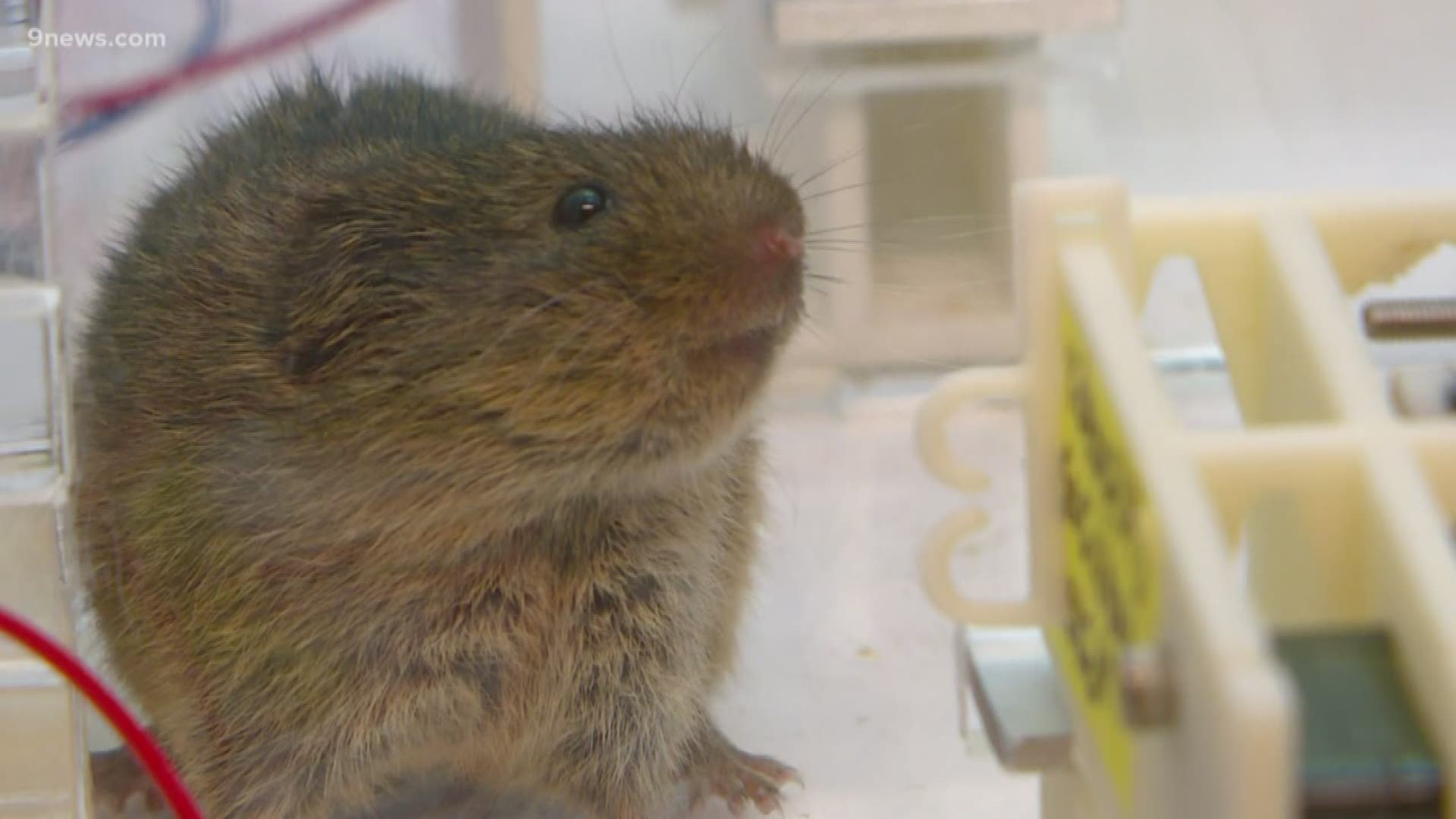We can learn about love studying art, dissecting lines of poetry or by painfully remembering a teenage breakup.
Zoe Donaldson remembers the boy who broke her heart years ago.
“I was desperately in love because I was a teenager and I had very little perspective,” she laughed. “It made me realize just sort of the depth of emotion that we’re capable of as human beings.”
Donaldson doesn’t want to give her teenage crush too much credit, but her questions about love and loss are essential to her career.
The assistant professor of behavioral neuroscience at the University of Colorado in Boulder is now happily married and continues to learn about love by researching rodents.
“They’re called the popcorn of the prairie,” she smiled, standing over a glass case housing a family of prairie voles.
“Prairie voles are little rodents. As the name suggests, they live in the prairie,” Donaldson said. “What makes them special is that like us, they have the ability to fall in love.”
Prairie voles are monogamous, Donaldson said. “Fewer than ten percent of mammalian species are monogamous.”
Inside Donaldson’s lab, prairie vole love is on full display.
Researchers place prairie voles in an enclosure and train them to press a lever that dispenses a tasty food pellet. Then, they try to convince the prairie voles to press another lever that opens a door to a “social reward.” In this case, the reward is their partner.
“This is really important for us to be able to do with these experiments because it’s a way that we can measure how much they want to reunite with their partner when we take their partner away for a little bit,” Donaldson said.
David Protter, a post-doctoral research fellow, and Maya Paulson, a junior at CU, help run the experiments in Donaldson’s lab. The two remember the first time they witnessed a prairie vole reunion.
“We both looked at each other and just went, ‘ooh!’” Protter said. “And then I took a video and sent it to the entire lab.”
“The highlight of my scientific career thus far,” Paulson said in agreement.
Donaldson and her team are interested in hormones that humans and prairie voles share, oxytocin and vasopressin.
Oxytocin drives bonds between moms and their babies, Donaldson said. Turns out, the same hormone facilitates bonds between female and male prairie voles.
“In the laboratory, if we take away their partner, they’ll show a change in behavior that suggests that they are less happy," Donaldson said. “They have elevated levels of stress hormones. They’re more anxious. They’re less active in general.”
Donaldson is curious about what happens inside an animal’s brain when it loses its partner and what needs to happen biologically for the animal to move on. Her work with prairie voles strives to help people overcome with grief or those who struggle to make bonds.
“The idea is if we can boost systems that are involved in bonding, such as the oxytocin system, maybe we can use that in a variety of therapeutic contexts,” Donaldson said.
The work starts with prairie voles because other animals don’t form the same kind of social bonds that they do.
“Mostly, I think that they’re really adorable and I think that they have the potential to teach us a lot about something that makes us just human – the ability to form bonds with the people we fall in love with," Donaldson said.
SUGGESTED VIDEOS | More Storytellers

